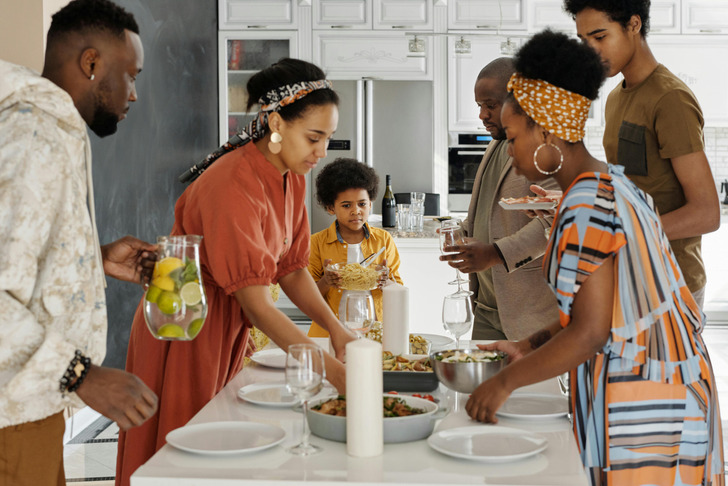Are the stepchildrens parents leaving anything to your daughter? Leave everything to your daughter and tell them that you changed your will after considering what they said. Just don't ell them to what. They'll assume they're getting more.
I Refuse to Divide My Will Equally and It’s Tearing My Family Apart
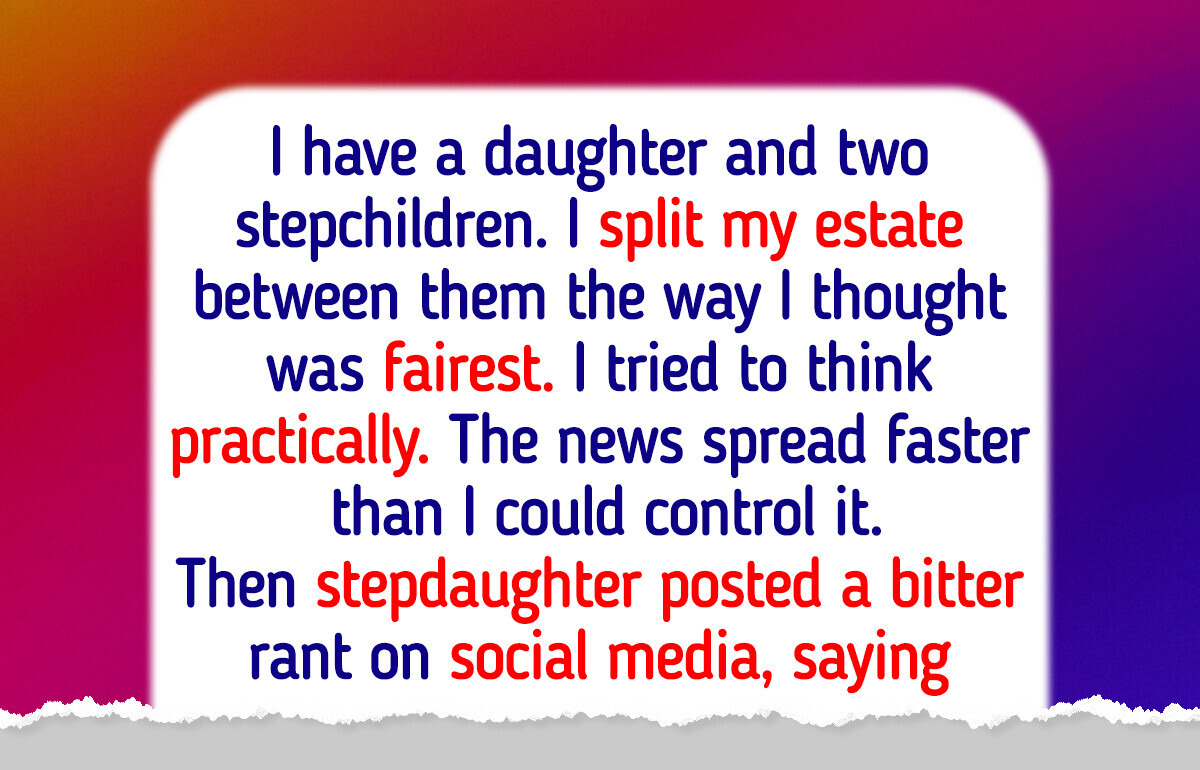
Dividing an estate among loved ones is one of the most sensitive decisions a person can make. It’s not just about money—it’s about legacy, love, and what feels fair in a complex family dynamic. When stepchildren, biological children, and differing life paths are involved, emotions can run high. What seems like a practical choice on paper can quickly become a deeply personal conflict.
Blended family bonds.
I always believed I had done my best to treat my children—biological or not—with love, care, and fairness. Blending a family wasn’t easy, but over the years, I thought we’d built something solid. I raised them all as my own, and in my heart, they are all my children.
I have a daughter and two stepchildren. So when it came time to make decisions about my will, I split my estate between them the way I thought was fairest. I tried to think practically and with compassion.
Inheritance fallout.
The news spread faster than I could control it. Within hours, my phone lit up with furious messages—"So that’s what we mean to you?" “You’ve always had a favorite, haven’t you?” Then came the confrontation.
My stepson showed up unannounced, shouting before I even opened the door. He accused me of never truly accepting him. My stepdaughter posted a bitter rant on social media, saying horrible things, twisting the story before I had a chance to explain.
Intentions misunderstood.
I had just decided to give a larger portion to those who have children, and a smaller one to those who don’t. Now I’m left wondering if I made a mistake—or if their reaction reveals something deeper.
I never meant to hurt anyone; I only hoped to support the ones with growing families who might need more help down the road.
Thank you for sharing your story, dear reader!! Here are some thoughtful and practical pieces of advice for navigating estate division in blended families.
1. Try to communicate your intentions early.
In our daily interactions, misunderstandings are inevitable. Whether at work, in personal relationships, or even casual encounters, we often find ourselves in situations where our words or actions are taken the wrong way. Talk to your children about your estate plans before it’s finalized. Explaining your reasoning can prevent misunderstandings and emotional fallout later.
2. Consider consulting a neutral third party.
An estate lawyer can administer a wide range of estate planning initiatives. They can work with you to create a will or build a comprehensive estate plan, ensuring that after you pass away, your assets are handled in accordance with your wishes. Estate lawyers or mediators can help guide difficult conversations and create plans that reduce tension among beneficiaries.
3. Try to be prepared for emotional reactions.
Open discussion is a vital component of a meeting where participants are encouraged to freely share their thoughts, ideas, opinions, and perspectives without strict structure or limitations. Even when you think you’ve done the right thing, feelings can get hurt. Be open to discussion, but also stand firm if you believe your decision reflects your values.
At the end of the day, parent’s choices came from a place of love and concern for kids’ futures. Time can help them see that, even if they don’t agree with every decision. Families may face storms, but with honesty and open hearts, healing is always possible.
Comments
Related Reads
12 Chilling Secrets That Shattered People’s Trust Forever

I Refused to Split My Son’s Inheritance With My Other Son

10+ Family Secrets That Could Trend on Google
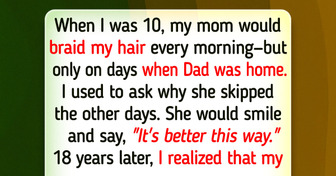
I Refuse to Sacrifice My Relaxing Family Vacation to Be My Stepsister’s Personal Assistant
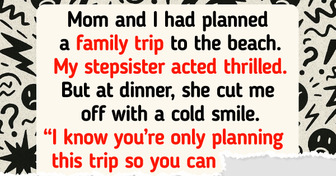
11 Stories That Prove First Love May Be Short, but Leaves a Lasting Mark Forever

I Refused to Pay for Our Valentine’s Dinner—Then I Learned the Heartbreaking Truth

My Family Excluded My Girlfriend From Christmas Because We’re Not Married

15 Stories That Show Kindness Is a Quiet Language the World Needs
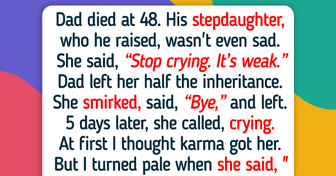
HR Told Me to Be Grateful for Pay That No Longer Covers Rent — Then Reality Hit Harder
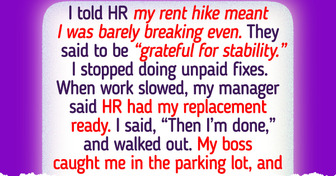
I Refuse to Be My Brother’s ATM Anymore—The Revenge He Planned Was Sick
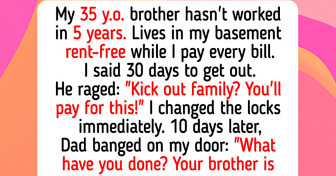
15 Stories That Inspire Us to Choose Kindness, Even If the World Gets Ugly

17 Moments That Remind Us Kindness Is a Choice, Not a Mood






